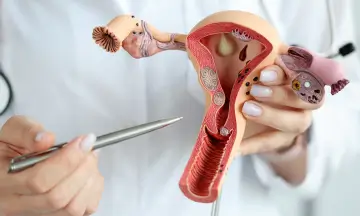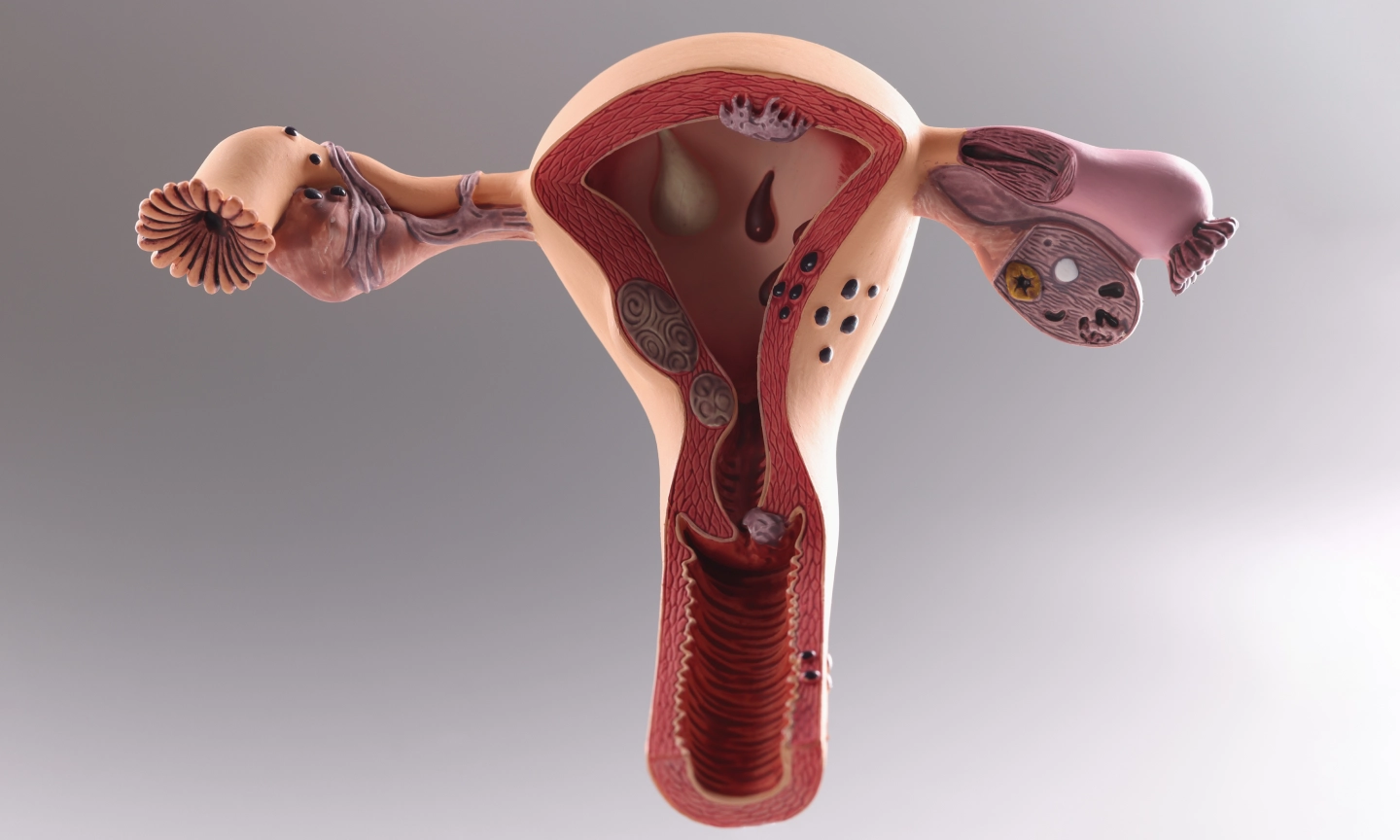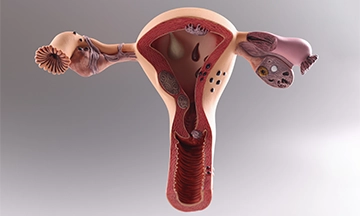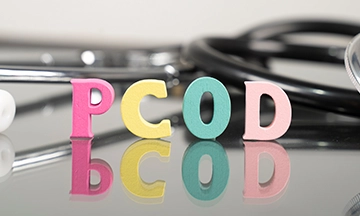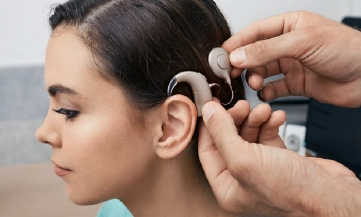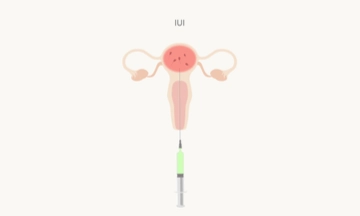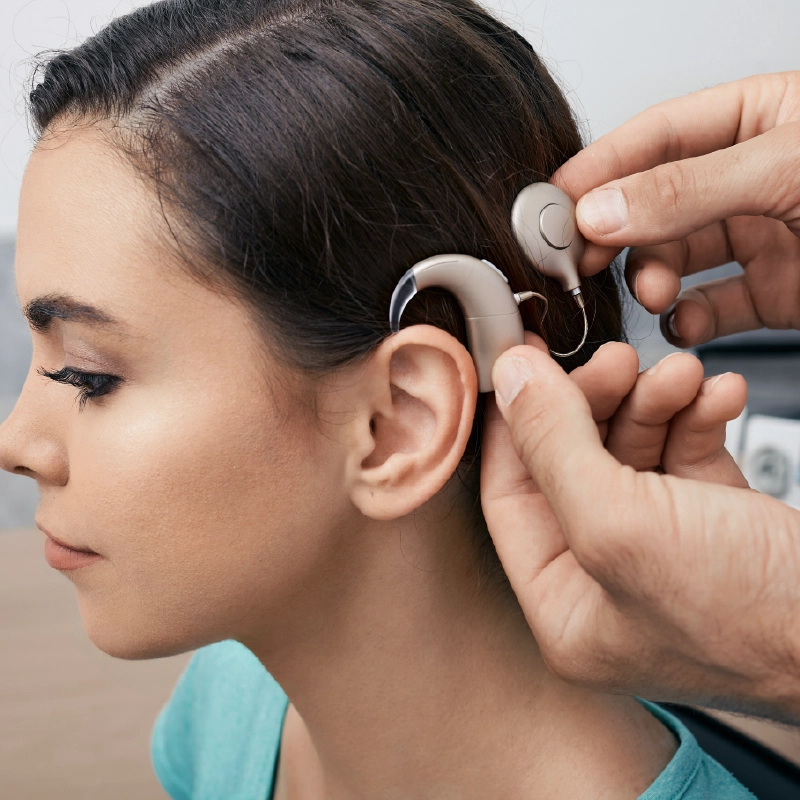
Hearing aids and cochlear implants have transformed the lives of individuals with hearing impairments, enabling them to navigate the world of sound with greater clarity and ease. However, these remarkable hearing solutions often suffer from misconceptions and misunderstandings.
In this blog, we will debunk some common myths about hearing aids and cochlear implants. We will also highlight the benefits of these treatments and provide important precautions to ensure their optimal usage. It's important to understand the truth about these treatments for hearing loss and take the necessary steps to ensure effective treatment and improved hearing abilities. By dispelling misconceptions and following precautions, individuals can make informed decisions about their hear loss treatment journey and experience the benefits of these solutions for better hearing and communication.
Prevalent myths of misconceptions about hearing loss and cochlear implants
Misconception 1: Hearing aids and cochlear implants are the same.
One of the most widespread misconceptions is that hearing aids and cochlear implants serve the same purpose. In reality, these devices differ significantly. Hearing aids are primarily recommended for individuals with mild to moderate hearing loss. They work by amplifying sounds, making them easier to hear. Cochlear implants, on the other hand, are designed for individuals with severe to profound hearing loss or those who do not benefit from hearing aids. Cochlear implants bypass damaged parts of the inner ear and stimulate the auditory nerve directly, allowing individuals to perceive sound signals.
Misconception 2: Hearing aids and cochlear implants restore hearing completely.
While hearing aids and cochlear implants greatly enhance hearing abilities, they do not restore hearing to normal levels. Hearing aids amplify sounds, but they cannot replicate the exact hearing experience prior to hearing loss. Similarly, cochlear implants provide access to sound, but the quality of sound perception may vary among recipients. Nevertheless, these devices significantly improve the wearer's ability to communicate and engage with their surroundings, leading to a more fulfilling life.
Misconception 3: Hearing aids and cochlear implants are only for the elderly.
It is a common misconception that hearing loss exclusively affects older individuals, leading to the belief that hearing aids and cochlear implants are solely intended for the elderly. However, hearing loss can affect people of all ages, including children and young adults. Early intervention with hearing aids or cochlear implants is crucial for children with hearing impairments as it aids in their speech and language development, academic performance, and social skills. For young adults, these devices can promote independence and improve the overall quality of life by overcoming communication barriers.
Misconception 4: Hearing aids are bulky, uncomfortable, and noticeable.
Advancements in technology have significantly improved the design and comfort of hearing aids. Many modern hearing aids are discreet, lightweight, and comfortable to wear. They come in various styles, including in-the-ear (ITE), behind-the-ear (BTE), and invisible-in-canal (IIC) options. These discreet designs address the stigma associated with visible hearing devices. Moreover, some hearing aids offer advanced features such as Bluetooth connectivity and rechargeable batteries, enhancing convenience and usability.
Misconception 5: Cochlear implants are only beneficial for those born deaf.
While cochlear implants have been highly successful in individuals born deaf, they are not exclusively for this group. Cochlear implants can be equally effective for individuals who have experienced hearing loss later in life due to factors such as age, illness, or injury. The key determinant for successful cochlear implantation is the health of the auditory nerve and the brain's ability to process auditory signals.
Benefits of Hearing Aids and Cochlear Implants
Enhanced Communication: Hearing aids and cochlear implants improve communication abilities, allowing individuals to engage more effectively in conversations and social interactions.
Increased Safety: By restoring or enhancing hearing, these devices enable individuals to be more aware of their environment, including warning signals, alarms, and approaching vehicles, thereby promoting safety.
Emotional Well-being: Improved hearing can alleviate feelings of isolation, depression, and anxiety that often accompany hearing loss. The ability to reconnect with loved ones and enjoy social activities contributes to emotional well-being.
Cognitive Stimulation: Hearing aids and cochlear implants provide essential auditory stimulation to the brain, which has been linked to improved cognitive function and reduced cognitive decline.
Precautions for Optimal Usage
Professional Evaluation: It is crucial to consult an audiologist or hearing healthcare professional for a comprehensive evaluation and appropriate device selection tailored to your specific hearing needs.
Proper Maintenance: Regular cleaning and maintenance of hearing aids and cochlear implants are essential to ensure optimal performance and longevity. Follow the manufacturer's instructions and seek professional assistance when needed.
Gradual Adaptation: It takes time for the brain to adjust to new sounds provided by hearing aids or cochlear implants. Gradual adaptation and consistent use will maximize the benefits over time.
Hearing Protection: It is important to protect your hearing from loud noises, as excessive exposure can damage the remaining hearing abilities and impact the effectiveness of hearing aids or cochlear implants.
Treatments for Hearing Loss:
Audiological evaluations: Undergo comprehensive audiological assessments to determine the type and degree of hearing loss. This information helps tailor the most appropriate treatment plan, whether it involves hearing aids, cochlear implants, or other interventions.
Rehabilitation and counseling: Hearing loss can be an adjustment, both physically and emotionally. Seek rehabilitation services, including speech therapy and counseling, to adapt to the changes and enhance communication skills.
Assistive listening devices: Explore additional assistive listening devices, such as FM systems or captioned telephones, which can complement the use of hearing aids or cochlear implants in challenging listening environments.
Conclusion
Hearing aids and cochlear implants are remarkable technologies that have revolutionized the lives of individuals with hearing impairments. By debunking common misconceptions, we can better understand the unique benefits they offer. These devices enhance communication, promote safety, and improve emotional well-being. It is important to take necessary precautions, such as professional evaluation, proper maintenance, gradual adaptation, and hearing protection, to ensure optimal usage and long-term benefit. Embracing these devices with accurate knowledge will empower individuals to lead fulfilling lives and fully participate in the rich auditory world around them. If you are facing hearing loss, don't hesitate to seek guidance from Sakra World Hospital, where you can find the best ear doctor in Bangalore to explore the best solution for improved hearing and communication.






